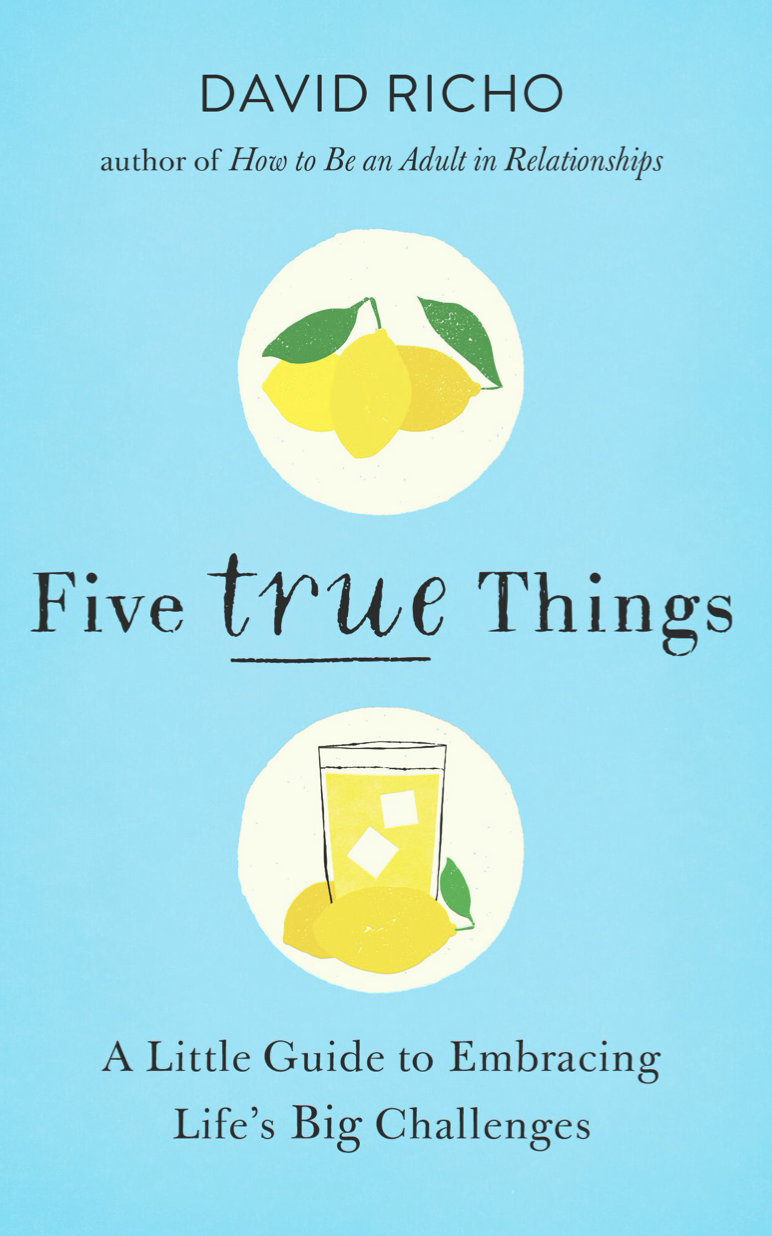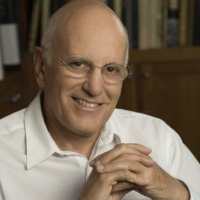
From Five True Things by David Richo. ~ Ed.
In the early 1940s, on the night of her graduation party, a high school girl named Doris Van Kappelhoff was involved in a serious car accident.
She had planned to go to Hollywood to become a dancer in films, but her injuries made that future no longer possible. Doris, during her long homebound recuperation, began to sing along with the female vocalists on the radio. Her voice became so well trained that she was hired to sing in a band, and soon thereafter, she found parts in movies, changing her name to Doris Day.
Her original plans were dashed by a tragic event, but thereby she found her true calling. Things don’t always go according to our plans, but a change of plans may be an example of synchronicity, the mysterious set of coincidental circumstances that lead us to a life fulfillment unguessed and unsought—other words for grace.
We make plans expecting to be in control of what will happen. Perhaps we fear natural happenings, things turning out contrary to our wishes. We are challenged by life’s “mind of its own” to let go of having things come out our way. This is about control. We may act with precision, and self-discipline, expecting the world to follow suit and grant us our reward.
Perfect discipline, or perfect control, is the best way to miss out on the joy of life. The unruly givens of life are permissions not to be perfect. We can flow into the natural chaos of life—so untidy, so unpredictable—or we can try to order life fully by making careful plans. But as Robert Burns says to a mouse: “The best-laid schemes of mice and men oft go astray and leave us naught but grief and pain for promised joy.” We know now that a yes to life is a yes to grief and pain, since all the conditions of existence represent losses and disappointments. Yes is a healthy response to the human condition.
Making plans is an adult occupation, a feature of a healthy ego. In fact, though, life often does not proceed according to our plans. This does not have to leave us crestfallen. It can make us excited that something spiritual—that is, unconjured by ego—may be afoot.
Perhaps we believe the universe has a plan that more accurately reflects our emerging destiny. Perhaps we believe there is no plan at all and “them’s the breaks.” As adults, we do not console ourselves with promises of a silver lining on every cloud or a Shangri-la in any land. Our comfort is in our commitment to deal with what happens and make the best of it. Or are we angry that the givens make us keep having to grow up?
To grow into adulthood means that we accept the givens of life as they are, and this helps us accept ourselves as we are. Being an adult means living with life’s conditions in an allowing way.
Maybe we don’t fit psychology’s definition of “well-adjusted,” or maybe we didn’t benefit from healthy emotional development. We did not have a perfect childhood or a perfect adolescence, and we are not having a perfect adulthood. All our investments are not paying off. All our hopes for the future are not coming true. Life is unpredictable and not at our beck and call. Can that become palatable? Can that be appreciated as somehow useful to our becoming people of character, depth, and compassion? Then to complain is to have missed the point.
In a world in which I may not do or finish anything perfectly or get anything permanently right, it makes sense to let go of the need for perfection. The Bhagavad Gita says: “Even a little progress is complete freedom from fear.” Can I be satisfied with that as my style?
~
Meet Elephant’s latest Craze., the tastiest electrolyte-infused drink mix, by far. And it’s careful science truly works>>
~
As long as I am doing my best most of the time and can let things happen as they happen and then do the best I can with them, I am perfectly human, and that is a supreme achievement. The alternative is hubris: “I can always get it right; I am better than other people.” Enlightenment is ordinariness loved, amor fati. It is saying: “I let go of more than any fate can take.”
Error and errancy are not tragedies. They are ingredients of and directions to discovery. They show us paths that humble us, startle us, and point us to new horizons. They do not have to lead to regret or shame.
We say yes to our imperfection and accept our mistakes. We learn not to do it that way next time. Mistakes are not a sign of stupidity. They are human ways of learning. Recalling our big mistakes in life is a way of staying humble, the virtuous flower that blooms from the bud of yes. Humility leads us to commit ourselves to admit our mistakes and make amends for anything we have done that may have hurt others. Such humility is a bridge to the letting go of regret.
Things are not always as we would like them to be, nor do plans always work out our way. The fact that we are not in control means that the proper bearing for life on the raft of this floating world is surrender to what is as it is, how it is, when or where it is.
We can fight with all our might for what can be changed, but only surrender works with what cannot be changed. The fact that we are not in control and that things happen that we neither sought nor planned means that there are forces at work bigger than our egos. This given is thus an intimation of divinity, as Ralph Waldo Emerson says: “So nigh is grandeur to our dust.”
What is the divine?
It may be Something—we know not what or whom, we know not how or when—that is always at work, but we do know why: so we can fulfill our destiny to become unique exemplars of love and wisdom.
The divine is the life force of the living universe that yearns to articulate itself in all of us. The finite is a unique moment of focus on the timeless infinite. We exist because of a beatific vision: the divine is focusing on time and space, and we are focusing back.
When the divine arrives here, it is I, and when it reaches there, it is you, and when it lands outside my window, it is that fig tree under which Buddha was enlightened, sitting quietly in an attitude of yes for a long time.
~
From Five True Things by David Richo ©2005, 2019 by David Richo. Reprinted in arrangement with Shambhala Publications, Inc. Boulder, CO.










Read 0 comments and reply